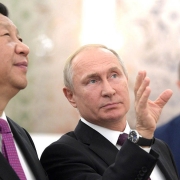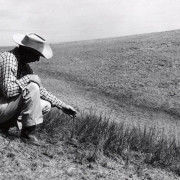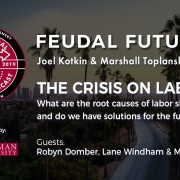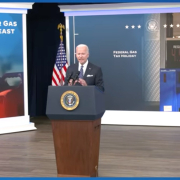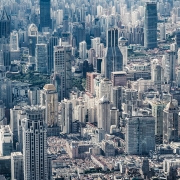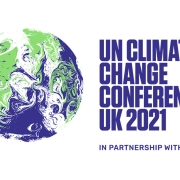The Great New Game
Russia’s invasion of the Ukraine will be remembered as one of the great crimes of the 21st century. The ensuing humanitarian crisis has already caused more than two million refugees to flee their homeland. With the imposition of sanctions, policymakers will have to weigh their political options as a rise in energy prices may trigger food shortages in the coming European fall, and lead to an even worse catastrophe in Africa and other developing countries. Under such circumstances, it’s easy to see the current war in Ukraine in Manichean terms. But once the conflict ends or devolves into a guerrilla war, national identity, geopolitics, and economics, not abstract principle, will drive events.
We are returning to something resembling the “Great Game” of the 19th century, which saw Britain and Tsarist Russia struggle over the resources of central Asia, while others in Europe—France, Germany, Belgium—strove to expand their empires into commodity-rich Africa. Following a lull after the collapse of the Soviet Union, the Great Game has now been renewed, with the US and China now occupying critical roles. The humiliating retreat of the US from Afghanistan, a country central to the old Game, has emboldened China and Russia to win the new one. The players have changed and today’s Great Game sets the stage for a new conflict—the “duopoly” of Russia and China, with their associated allies like Iran and Venezuela, against America and the democratic West.
This conflict will not necessarily be military, and while Russia and China are the keystones of the duopoly, they will play distinct roles. Russia remains a highly militarized nation, whose oil- and gas-driven economy provides its government with roughly 40 percent of its revenue. China, on the other hand, has been using Russia’s oil, and that of allied states like Iran, to build the world’s most formidable industrial economy. China has the financial wherewithal to provide the embattled Russian economy with ballast, including an alternative credit card system to replace that of the West.
Excluding Russia from the Western-dominated economy has pushed the two autocratic giants together, and Russia is now getting Chinese funds to finance its crucial resource sector. What makes Russia attractive and even bankable for the Chinese is not ideology, but energy. Despite dreams of global kumbaya, we are closer to parallels with the last world war than many suspect. “Petroleum products,” wrote the American geographer C.F. Jones in 1943, “are the blood of battles that bring victory.” Energy helped set the stage for the current invasion, as Putin’s resources pay for his chosen instruments of terror. Europe, argues human rights activist Garry Kasparov, essentially gave Putin the “green light” to invade. When Russia invaded Ukraine, so did Germany and “the Netherlands, Italy, France, Great Britain,” all of whom have funded Russia’s “war machine for the past decade.” The missiles hitting Kharkov and strafing Kyiv were, after all, paid for by the West.
If the West understood how to restrain Putin, it would have immediately banned Russian oil, a decision Biden took only reluctantly and under much pressure. Europe says it will get around to cutting consumption by next winter. So, the United States—a country on the verge of becoming the world’s largest gas exporter and self-sufficient in oil—has been forced to beg autocracies in Saudi Arabia and UAE and even Venezuela to bail out America’s angry motorist. So far even this indecent kowtowing is being rebuffed. An opportunity to show American strength and European resolve has collapsed under the weight of energy realities.
Read the rest of this piece at Quillette.
Joel Kotkin is the author of The Coming of Neo-Feudalism: A Warning to the Global Middle Class. He is the Roger Hobbs Presidential Fellow in Urban Futures at Chapman University and Executive Director for Urban Reform Institute. Learn more at joelkotkin.com and follow him on Twitter @joelkotkin.
Hügo Krüger is a structural engineer with working experience in the nuclear, concrete, and oil and gas industry.
Photo: Xi Jinping and Vladmir Putin via Wikimedia under CC 4.0 License.

